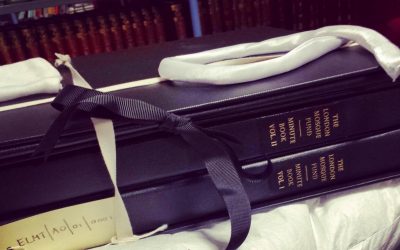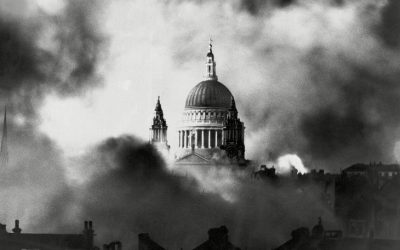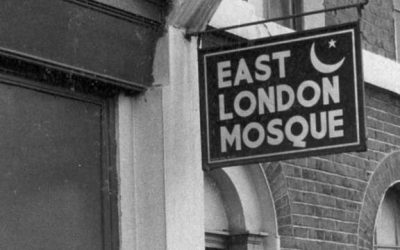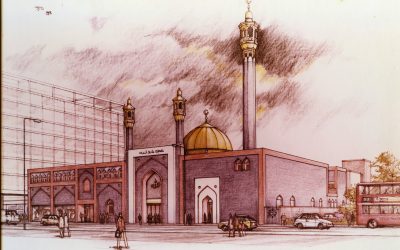The East London Mosque archives are a treasure trove for local history projects, genealogical enquiries, biographical work and studies of community development. The oldest documents date from 1910, when the London Mosque Fund was established. It has unique records on the early twentieth Century history of Muslims in Britain, such as the activities of the Indigent Moslem* Burial Fund (founded 1925), the Jamiat ul Muslimin (founded 1934) and the East London Mosque Trust (founded 1948). The archives document the campaigns and efforts of the Muslims in east London to establish the vibrant and inclusive centre that stands today on Whitechapel Road. The archives include correspondence with many Muslim civil society organisations that no longer exist.
*[That is how it was spelt in those days]
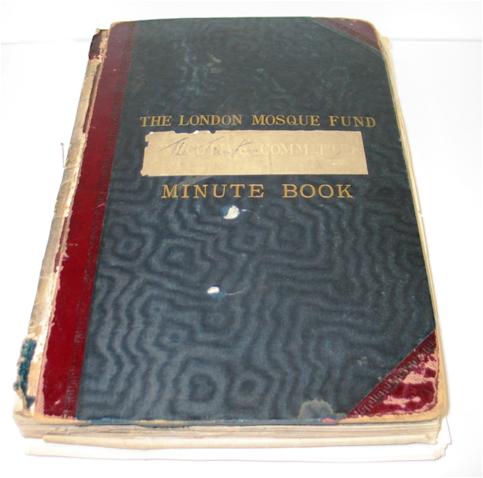
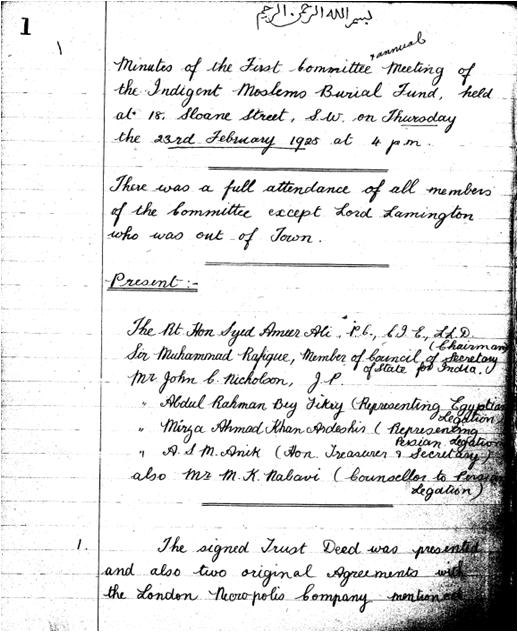
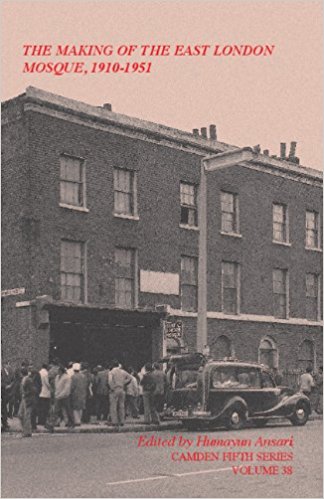
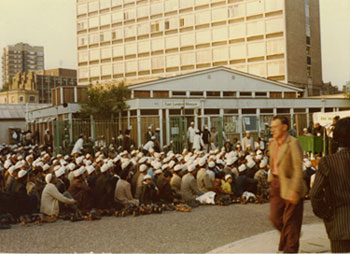
Left to Right: the London Mosque Fund Minutes Book, with elegantly hand written record of meetings from 1911; a page from the Minutes Book of the Indigent Moslem Burial Fund, showing the names of attendees at a meeting in 1925; the cover of Professor Humayun Ansari’s Book on the East London Mosque (The Making of the East London Mosque, 1910-1951: Minutes of the London Mosque Fund and East London Mosque, Camden Fifth Series, 2011) showing the first East London Mosque’s premises on Commercial Road – suffered bomb damage in the 1940s; as a result of compulsory purchase order issued by the Greater London Council in 1974, the mosque was then housed in a pre-fab building on Fieldgate Street (using recycled material from the recently completed Islamic Cultural Centre in Regents Park!). The construction of the purpose-built mosque on Whitechapel Road was completed in 1985.
Sulaiman Jetha (1906-1996) – the photo on the left as a young man, on the right, in old age. A significant portion of the archives relate to his correspondence with institutions and individuals on the work of the Jamiat ul Muslimin, the Indigent Moslem Burial Fund and the East London Mosque Trust (ELMT) – a remarkable record of community service spanning over 50 years! He was appointed Honorary Treasurer of ELMT in 1951 and Chairman in the 1990s. In his declining years he became partially blind, but would still make his way from his home in Finchley to the Mosque, knowing exactly how many steps were needed! Rahemahu Allah.
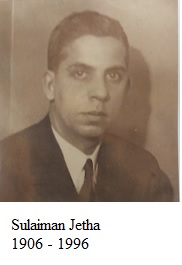
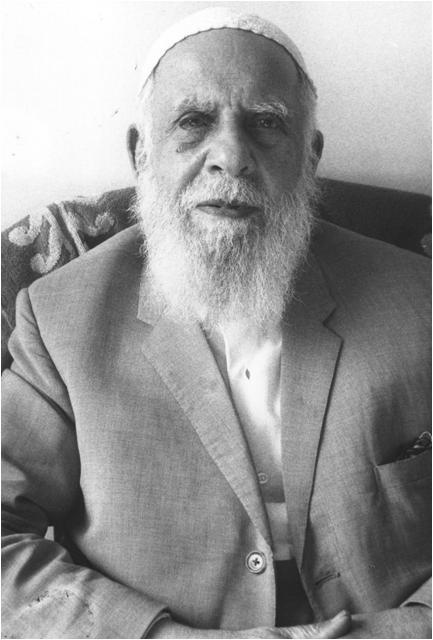
Want to view our online catalogue?
Latest News & Blogs
Four Scholars of the Qur’an
Left to Right: Muhammad Marmaduke Pickthall (1875-1936); Abdullah Yusuf Ali (1872-1953); Arthur John Arberry (1905-1969); Muhammad Hamidullah (1908-2002) The archives of the East London Mosque contain correspondence with four twentieth century translators and...
Dr Jamil Sherif: A History Preserved
On the night of 8th March 1941 a bombing raid over East London damaged a row of terraced houses on Commercial Road”. These included a property that had recently been acquired by the London Mosque Fund to serve as a mosque for lascars and the local Muslim...
Biography of a Mosque: The story of London’s first Mosque, 1910-1942
On the South side of Whitechapel Road in East London between Aldgate East and Whitechapel Tube stations sits the gold dome of the East London Mosque. For some, it is one of many exotic shapes cropping up all over Britain; for local Muslims it is perhaps more...
100 Years: The East London Mosque Trust
It’s a rare occasion for any Muslim organisation to be celebrating a 50-year anniversary in Britain let alone a 100th birthday. But the East London Mosque is celebrating its centenary year right now. A century since its birth, have we really asked...
First of Its Kind: A Dedicated British Muslim Archive
We are about to open our new Strong Room that will house the East London Mosque Trust’s archive collection. This is a very exciting time for the Trust, which represents the only British Muslim Archive in Western Europe.
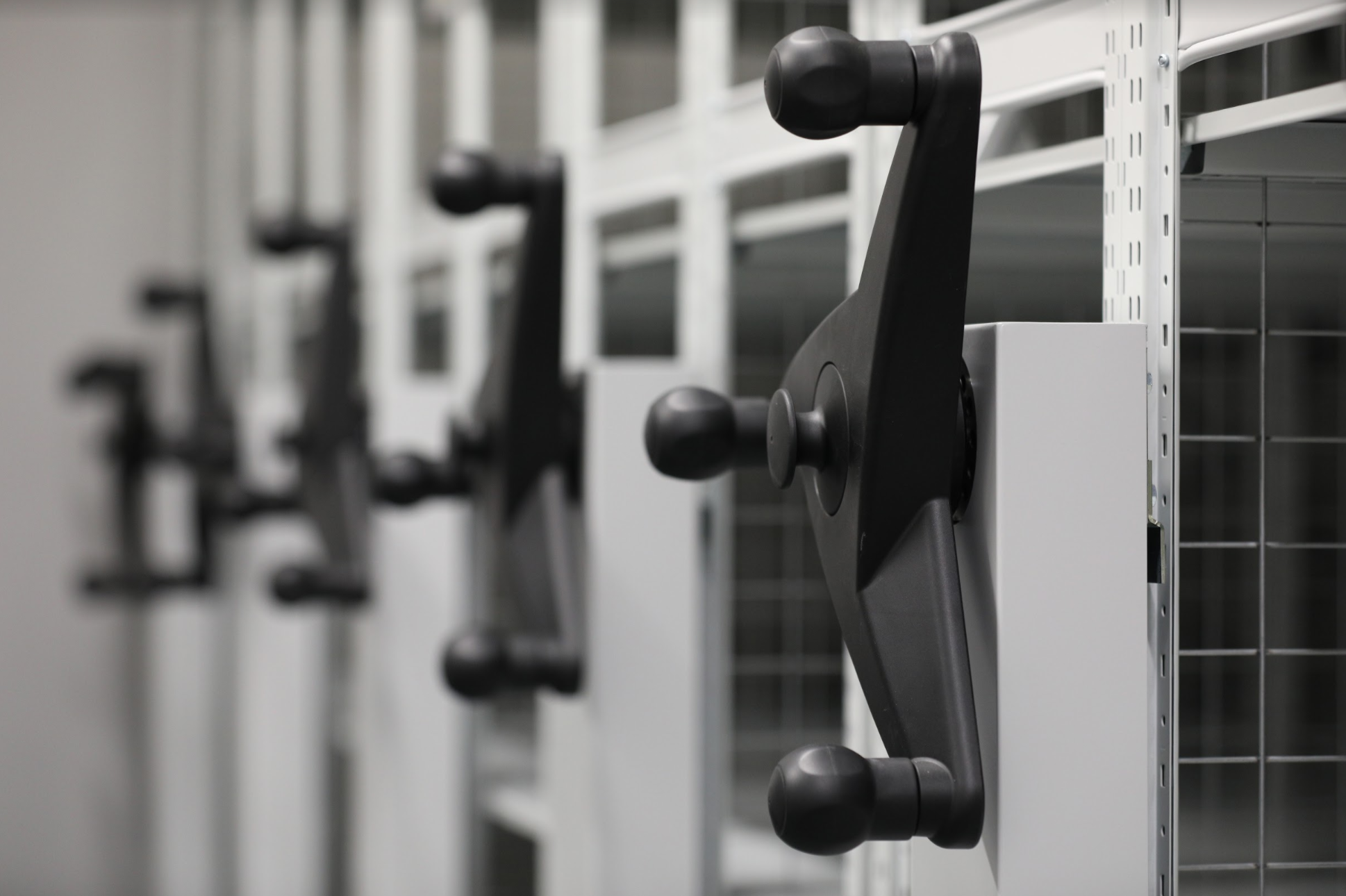
Support the Archives
Generous donors and the Mosque have contributed over £50,000 to help kickstart the Archives strong room project. We need your support to help document and facilitate research of British Muslim heritage.
The Need
The East London Mosque Archives has the potential of developing into an invaluable source of British social history, not just relating to institutional development but also the private papers of individuals who have been associated with the London Mosque Fund, the Indigent Moslem Burial Fund, Jamiat ul Muslimin and the East London Mosque Trust. These include distinguished scholars of the Qur’an such as Abdullah Yusuf Ali, Muhammad Marmaduke Pickthall, Professor Muhammad Hamidullah and Professor Arthur Arberry.

